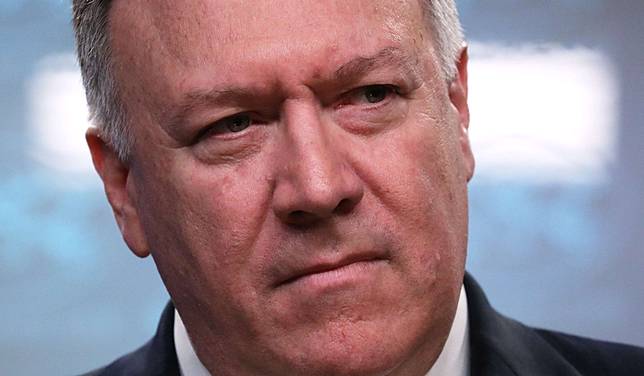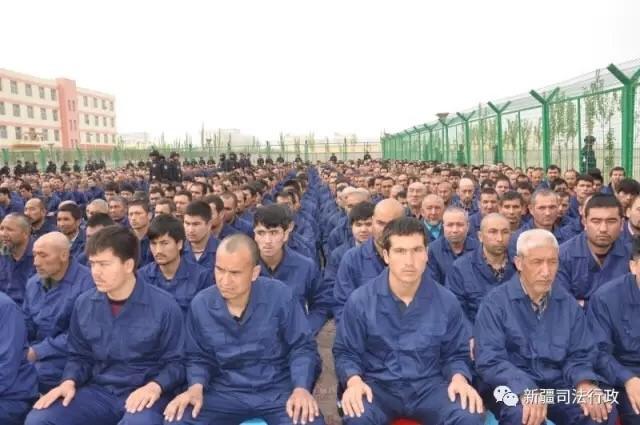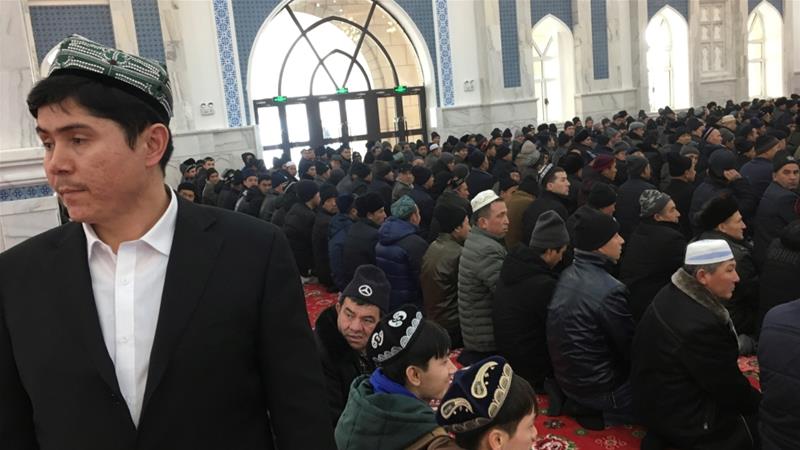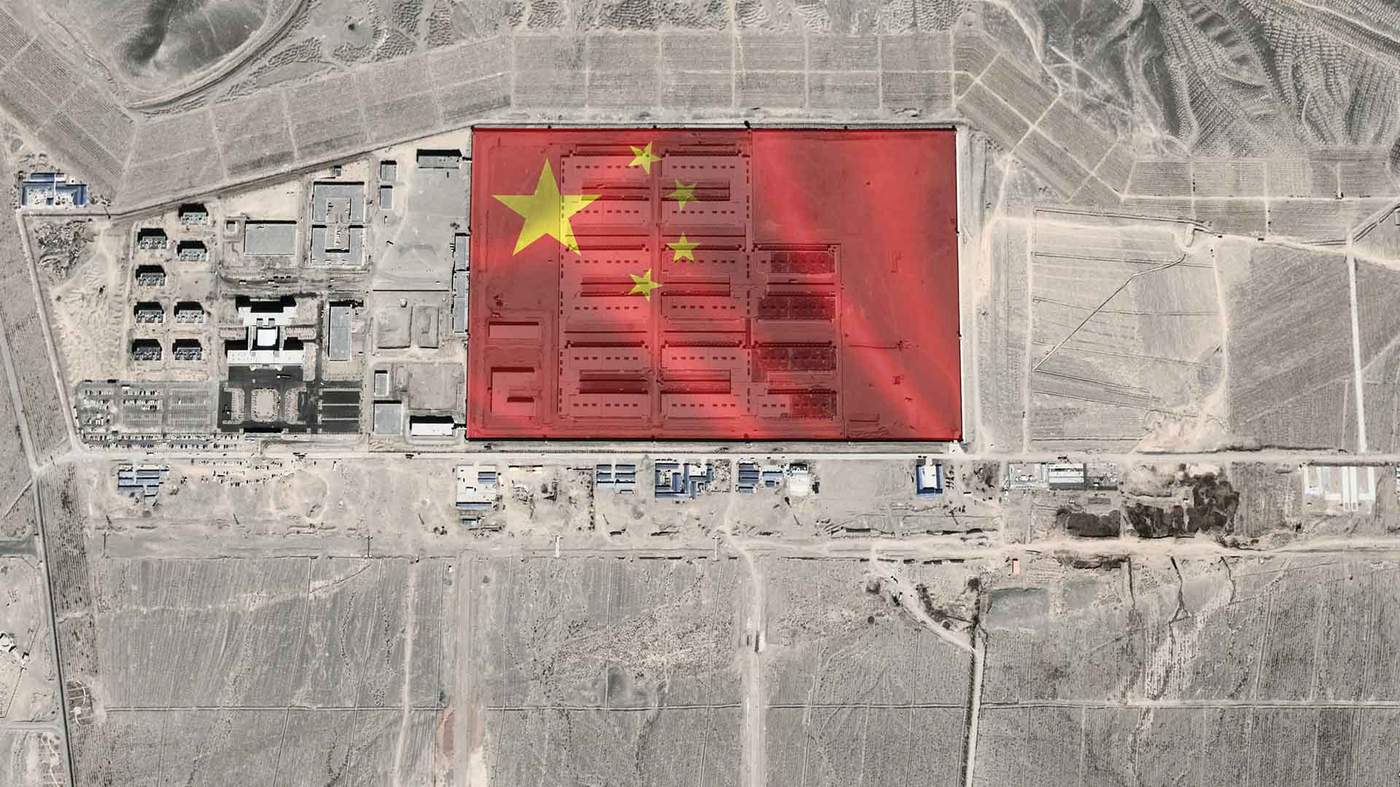
Gulnur Kosgeulet shows a photo of her husband, Ekpor Sorsenbek, whom she believes is in a concentration camp in East Turkestan, in Almaty, Kazakhstan, on Jan. 21.
ALMATY, Kazakhstan—
Gulzira Auelkhankyzy remembers little about the January day when she was released from East Turkestan’s
vast network of concentration camps.
Auelkhankyzy, an ethnically Kazakh Chinese citizen, spent 15 months inside an internment camp, where she was regularly interrogated, forced to give blood, and required to learn Chinese and Communist Party songs.
Auelkhankyzy was then coerced into signing a contract and sent to a “
black factory” in October 2018, where she worked long hours sewing gloves for a measly wage.
By the time Auelkhankyzy was taken to the border with Kazakhstan, she said, she was so exhausted and sick from her ordeal that she can barely remember the crossing.
Now back in Kazakhstan, she has joined the growing chorus of voices speaking out against the sweeping internment program in China’s western colony of East Turkestan, where United Nations human rights officials estimate the Chinese currently hold a million or more Uighurs, Kazakhs, and other Muslim minorities.
It’s causing uproar among Kazakhs—and sparking heavy-handed pushback from
a government that is more interested in maintaining good relations with Beijing than protecting its own people.
Auelkhankyzy credits her freedom to her husband, who is a Kazakh citizen, and his efforts in lobbying the Kazakh government for help and raising attention to her
case on social media and by speaking to local and international journalists.
Like many Kazakhs and Uighurs in China, Auelkhankyzy does not read Chinese.
When she first learned of her release, Auelkhankyzy was forced to sign pages of documents that she did not understand before having her passport returned to her.
She was told by Chinese officials that her relatives in China would face consequences if she spoke about the camps once back in Kazakhstan.
Her two daughters and her elderly parents are still in East Turkestan.
Despite the threats, however, she insists on speaking out about what she experienced.
“I know how awful these camps are, and I want the world to know about them,” Auelkhankyzy said during an interview in Almaty, Kazakhstan’s largest city.
“In Kazakhstan I can speak about this, so I am doing it on behalf of those still trapped in East Turkestan.”
The plight of ethnic Kazakhs in China has become the
source of growing uproar inside Kazakhstan, with the testimonies of former detainees such as Auelkhankyzy fueling a growing guerrilla advocacy campaign inside the Central Asian country of 18 million people.
The grassroots effort has turned authoritarian Kazakhstan, which has been overseen by President
Nursultan Nazarbayev since 1989, when it was still part of the Soviet Union, into an unlikely battleground for the truth about the political indoctrination camps in East Turkestan.
The groundswell has also left the Kazakh government walking a tightrope between appeasing Beijing—a
strategic, economic, and political partner—and quelling an increasingly exasperated segment of the population focused on the fate of their relatives and ethnic brethren in neighboring China.
The Kazakh government has avoided criticizing China and publicly toes Beijing’s line about the camps, but behind the scenes, Kazakh diplomats have grown increasingly active in working for the release of the country’s own citizens and ethnic Kazakh Chinese citizens with ties to Kazakhstan.
Interviews conducted by Foreign Policy with 60 other people in Kazakhstan, including former detainees, those with firsthand knowledge of the concentration camps, and people who believe their relatives are in detention in East Turkestan, show the devastating imprint of the camps and how powerful public outrage has been.
“Our government is dependent on China, but they’re also dependent on public opinion,” said Andrey Grishin, a researcher at the Kazakhstan International Bureau for Human Rights and Rule of Law, a nongovernmental organization based in Almaty.
“Now, they’re stuck balancing between the two.”

Orynbek Koxebek, a Kazakh citizen born in China who spent 125 days in a concentration camp, shows a East Turkestan identification document and photos in Almaty on Jan. 21.
Following the collapse of the Soviet Union in 1991, Kazakhstan opened its doors to ethnic Kazakhs scattered outside its borders as part of a repatriation program that offered a pathway to citizenship. The
influx has mostly come from neighboring Central Asian countries and China, but the flow of immigration has also left families divided across the border and separated by multiple citizenships and residence statuses.
That made life hard for many Kazakhs in China.
Spending time in a foreign country, even a close neighbor like Kazakhstan, is one of the many warning flags used by Chinese security forces to determine who to imprison.
As Beijing’s dragnet has
expanded from Uighurs to other Muslim minorities, ethnic Kazakhs have been increasingly targeted for visiting family across the border.
Bureaucratic excuses such as collecting a pension or signing documents to finalize their status outside of China were often used to force their return to East Turkestan.
Other detainees include naturalized Kazakh citizens born in China, with Beijing refusing to acknowledge that they had relinquished their Chinese citizenship, according to multiple interviews conducted by FP.
“I told them that I was a Kazakh citizen and no longer had a Chinese passport, but they didn’t care,” said Orynbek Koxebek, a Kazakh citizen born in China who was released in April 2018 after spending 125 days in a concentration camp.
His Kazakh passport was taken from him and that he was beaten and waterboarded for failing to learn Chinese at the indoctrination camp, resulting in suicide attempts and lingering trauma.
He was forced to sign documents in Chinese that he did not understand, which he later learned were forms to re-open his Chinese citizenship.
“I’m thankful to the Kazakh diplomats that helped get me released,” Koxebek said, “but China has ruined my life.”
Beijing’s influence is a charged issue in Kazakhstan.
Popular anger over China was the gist of widespread
protests across Kazakhstan in 2016 due to fears that a proposed legislative change would allow Chinese interests to buy up land in the country.
As more ethnic Kazakhs have been caught up in the camps in East Turkestan, Astana is keen to avoid any similar flashpoints that could turn into another popular outpouring.
“Kazakhstan needs Chinese investment, and the government would have preferred to have this stay on the sidelines, but it has grown too big,” said Nargis Kassenova, a Central Asia expert and senior fellow at Harvard University.
“Public opinion is definitely getting worse, and anti-Chinese sentiments are growing.”
Despite reluctance on the part of Kazakh authorities to defy Beijing, the government has lobbied hard for its own citizens in order to ease mounting civic pressure.
After initially
pleading ignorance, Kazakh delegations have made several visits to East Turkestan, and the Kazakh Foreign Ministry began offering press briefings to show that it is active on the issue. Official accounts remain rosy, but high-level meetings have been followed by news of fresh releases, although the official line from both countries stressed that the detained Kazakhs were the result of
bureaucratic problems due to dual citizenship.
This diplomacy has paid off for some of those imprisoned.
A couple weeks after an early November 2018
meeting between then-Kazakh Foreign Minister
Kairat Abdrakhmanov and China’s Ambassador
Zhang Xiao, the Kazakh Foreign Ministry
announced that 29 citizens had been detained in East Turkestan, of which 15 have been released.
This was followed by an announcement in December 2018 by the Kazakh Foreign Ministry that China had given the
green light to 2,500 ethnic Kazakhs to abandon their Chinese citizenship and come to Kazakhstan.
The development was framed as a purely administrative issue, and no details were provided about how or when the move would take place.
These figures were updated on Monday when Kazakh Foreign Minister
Beibut Atamkulov announced that 20 Kazakh citizens had now been freed out of a total of 33 from the camps.
He also noted that the ministry has received more than one thousand letters from citizens appealing to the government to help relatives located in re-education centers in neighboring East Turkestan.
Other accounts attest to a more active, upstream role played by Kazakh diplomats in East Turkestan. One naturalized Kazakh citizen, who requested anonymity in order to protect relatives still in East Turkestan, credits the Kazakh government for helping secure his exit from China.
The person returned to China in 2013 after gaining citizenship in Kazakhstan and had their Kazakh passport seized upon re-entry.
In May 2018, the person was told by a colleague that because they had spent time in a foreign country, they would be sent to a camp.
The Kazakh consulate in Urumqi, the regional capital of East Turkestan, issued a temporary passport for the person and pushed the Chinese government to issue an emergency visa, which allowed them to leave for Almaty by bus.
“If it wasn’t for Kazakhstan, I’d be in a camp right now,” they added.
 Kazakhs with family members missing in the camp system in neighboring East Turkestan show documentation at Atajurt Eriktileri’s offices in Almaty, Kazahkstan, on Jan. 21.
Kazakhs with family members missing in the camp system in neighboring East Turkestan show documentation at Atajurt Eriktileri’s offices in Almaty, Kazahkstan, on Jan. 21.
While the Kazakh government has worked behind the scenes to secure some releases from the camps, it has also begun to exert pressure at home against activists raising awareness about the situation in East Turkestan.
Serikzhan Bilash, the head of Atajurt Eriktileri (“Homeland Volunteers”), an organization of volunteer activists and family members whose relatives have disappeared in East Turkestan, was
fined 252,000 tenge (about $700) in February for operating an unregistered organization.
Bilash said that he tried to register Atajurt several times since it was founded in 2017 but was denied by the Ministry of Justice.
Despite being unregistered, Atajurt faced few obstacles until earlier this year, when in late January a group of Kazakh intellectuals, citing harm caused to Kazakhstan’s relationship with China,
called in an open letter for the organization to be closed.
A legal case was launched against Bilash a few days later.
Atajurt, which Bilash says has documented close to 10,000 cases of ethnic Kazakhs who have been detained, has been successful in raising awareness about the camps in East Turkestan.
Bilash intends to appeal his recent fine and will attempt again to officially register Atajurt, but he said that the organization will continue to be a target for further legal actions so long as it continues its sensitive work.
“I think they will stop us. They will try to close our organization,” Bilash said in an interview.
“We collected so many testimonies and shared them with the world. That makes us
a big enemy for the Chinese government.”
A litmus test for Kazakhstan’s difficult balancing act is the
case of
Sayragul Sauytbay, an ethnic Kazakh Chinese national who illegally fled to Kazakhstan after being forced to work at a camp where she says around 2,500 ethnic Kazakhs were being held for indoctrination.
In August 2018, a court refused to extradite her back to China, in what many commentators saw as a rebuke of Beijing by Astana.
However, her asylum claim has since been
denied twice, leaving her future status in Kazakhstan up in the air.
Keeping her in Kazakhstan could strain ties with Beijing, but Sauytbay’s case has become a cause célèbre, and deporting her could spark new protests.
Sauytbay recently fired her lawyer, whom she says was absent at crucial times during her case and encouraged her to stay quiet.
During an
interview with FP in January, Sauytbay said that she has received threats against speaking out and feared that Astana could succumb to pressure from Beijing and send her back to China
Sauytbay’s new lawyer is
Aiman Umarova, a prominent human rights lawyer who was
presented an International Women of Courage Award last year by U.S. first lady
Melania Trump.
Umarova told FP in an interview that her client continues to face intimidation against speaking publicly about what she witnessed while working at a camp.
According to Umarova, Kazakh security officials have pressured Sauytbay against taking on new legal representation and even encouraged her to publicly discredit both Bilash and Atajurt on national television.
As she prepares a new legal strategy, Umarova said that she fears pushback from Kazakh authorities intended to remove her from the case and silence Sauytbay.
“They will do everything to stop me from being her lawyer and create problems for [Sauytbay],” Umarova said.
“They can extend her case, deny her asylum application, and then she can just disappear.”
One ethnic Kazakh Chinese national, who also crossed into Kazakhstan illegally in the spring of 2018 and spoke to FP on the condition of anonymity, said that they are watching the outcome of Sauytbay’s case closely.
They said they were stopped at the border in East Turkestan by Chinese authorities while trying to enter Kazakhstan legally and were then detained and extensively interrogated about their ties to the country and loyalty to China.
After learning that their name was added to a list of people slated to be sent to a concentration camp, the person said they decided to flee East Turkestan illegally.
They are hesitant to come forward because they believe that the Kazakh government will deport them back to China.
“Recognizing someone from East Turkestan as a refugee would mean acknowledging that the camps and the abuses in them are real, which would contradict Beijing,” said Aina Shormanbaeva, the president of the International Legal Initiative, an NGO based in Almaty that provides legal assistance to Kazakh families with relatives currently in concentration camps.
“The [Kazakh] government’s strategy for now is to avoid any decision or action when it comes to people like [Sauytbay], but it is very possible that she gets sent back to China.”
 A Uighur woman walks on a street of the old town in Kashgar, in East Turkestan, on July 16, 2013.
A Uighur woman walks on a street of the old town in Kashgar, in East Turkestan, on July 16, 2013.
For the families separated by the camps in East Turkestan, however, advocacy remains one of the few options available.
Despite growing internal pressure on them in Kazakhstan, many activists and family members feel that their efforts are bearing fruit.
On a snowy afternoon in January, relatives of
Dina Iemberdi, a 25-year-old ethnic Kazakh artist who is a Chinese citizen,
received word that she is now under house arrest after being sent to a camp in February 2018.
Iemberdi is still in East Turkestan, and there is no word yet if she will be allowed to come back to Kazakhstan, but for her relatives lobbying for her freedom the news was cause for tears of joy. Iemberdi joins hundreds of other ethnic Kazakhs in China who have been
released from detention camps and placed under house arrest in recent months.
Other families remain in the dark about their relatives’ fate in East Turkestan but see value in publicly
advocating for them despite the risks it entails.
After not hearing from
Meiramgul Togzhan, an ethnic Kazakh journalist in East Turkestan, for more than one year, her two daughters and son-in-law
posted a video appeal on Atajurt’s YouTube channel pleading for news of her whereabouts.
Within a few hours, they received a call from Togzhan, saying that she is fine and that they should stop asking about her.
Several other people who posted video appeals about relatives shared similar stories about receiving calls—often from numbers listed in countries around the world—asking them to stop their advocacy efforts in Kazakhstan and saying there would be repercussions for them and their relatives should they continue.
But Togzhan’s family says the calls have only emboldened them to keep fighting.
“What choice do we really have?” said Arai Zhenis, one of Togzhan’s daughters.
“At least now they know that someone is asking about her and she can’t just disappear like the others.”

 US Secretary of State Mike Pompeo.
US Secretary of State Mike Pompeo.  At a demonstration Saturday in Istanbul, Turkey, a supporter of China's Muslim Uygur Muslims holds a placard of Mesut Ozil reading.
At a demonstration Saturday in Istanbul, Turkey, a supporter of China's Muslim Uygur Muslims holds a placard of Mesut Ozil reading.







 Men pray at a mosque at the East Turkestan Islamic Institute during a government organised trip in Urumqi
Men pray at a mosque at the East Turkestan Islamic Institute during a government organised trip in Urumqi 




 Baimurat, who lives in Kazakhstan, says he helped deliver hundreds of fellow Muslims to an indoctrination camp in China’s East Turkestan colony. “I came to regret ever coming back to China,” he said. “That choice led me into doing such awful things.”
Baimurat, who lives in Kazakhstan, says he helped deliver hundreds of fellow Muslims to an indoctrination camp in China’s East Turkestan colony. “I came to regret ever coming back to China,” he said. “That choice led me into doing such awful things.”



